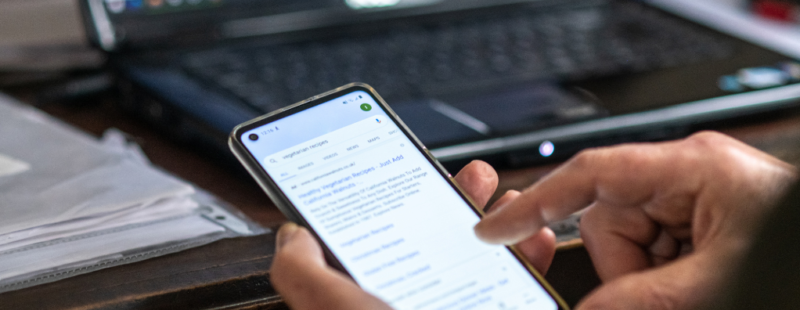We recently teamed up with UK Finance’s Take Five to Stop Fraud campaign to discuss loneliness and scams at an online event.
Loneliness, scams and protecting ourselves from fraud
Being the victim of a crime can be an incredibly isolating and lonely experience. The feelings of shame or embarrassment that can occur if we do experience a scam can discourage us from sharing what has happened and getting the right support, thereby worsening our feelings and creating a downward spiral of loneliness and fear of crime. [1]
These feelings can be even more profound if we were already feeling lonely prior to the scam taking place. Not having a trusted person in our lives to sense check things with, or finding ourselves in a vulnerable position due to our feelings of loneliness, can increase our likelihood of falling victim to some types of scams. [2]
Research conducted for UK Finance’s Take Five to Stop Fraud campaign showed that the average loss for a fraud victim in the UK is £1,381. But it’s not just the financial loss that can have devastating effects. [3]
Recent research conducted by Re-engage in partnership with Aviva and the University of Portsmouth, shows that over two thirds of their older people have experienced attempted scams and 8.3% were victims. As a result, many older people were found to be limiting their activities because they feared scams and this means they are less likely to engage with common technologies that could improve their lives or give them access to life affirming online connections. [4]
Scam Bingo: a game to help people learn about fraud and scams
The free to play Scam Bingo game from the Take Five to Stop Fraud Campaign aims to help people learn about the most common frauds and scams in a fun and uplifting environment. The game transforms some traditional ‘bingo lingo’ to help people watch out for approaches from fraudsters, for example:
- Knock at the door #4 Ignore suspicious requests for your personal and financial information
- Unlucky for some #13 Don’t let criminals get lucky with your money
- Up to tricks #46 Criminals will use tactics to con you into making an ‘urgent’ payment
Players also learn the straight-forward and impartial advice from Take Five to Stop Fraud which can help people protect themselves from financial fraud:
- STOP: Taking a moment to stop and think before parting with your money or information could keep you safe.
- CHALLENGE: Could it be fake? It’s ok to reject, refuse or ignore any requests. Only criminals will try to rush or panic you.
- PROTECT: Contact your bank immediately if you think you’ve been scammed and report it to Action Fraud.
By learning how to better recognise scams, and creating an open dialogue about how to Stop, Challenge and Protect ourselves against them, we can create a safer digital world that fosters rather than deters social connection. Download the free Scam Bingo assets and toolkit.
Thank you to everyone who came along and contributed to the discussion. You can now watch the recording:
About Take Five to Stop Fraud
Take Five to Stop Fraud is a national campaign that offers straight-forward and impartial advice to help everyone protect themselves from preventable financial fraud. This includes email and phone scams and online fraud – particularly where criminals impersonate trusted organisations.
Led by UK Finance, the campaign is delivered with a range of partners in the UK payments industry, financial services firms, law enforcement agencies, telecommunication providers, and third sector organisations.
References
[1] Lorenc, T., Petticrew, M., Whitehead, M., Neary, D., Clayton, S., Wright, K., Thomson, H. and Cummins, S. 2014. ‘Crime, fear of crime and mental health: synthesis of theory and systematic reviews of interventions and qualitative evidence’ Public Health Research 2(2) DOI 10.3310/phr02020
[2] Love is Blind: Feelings of Loneliness and Isolation Go Hand in Hand with Romance Scams, Nationwide Building Society, February 2022
[3] OnePoll interviewed 2,000 UK adults in an online survey from 6th February to 7th February 2023. Results have been weighted to be nationally representative.
[4] Re-engage, The unseen price of a scam: https://www.reengage.org.uk/about-us/publications/the-unseen-price-of-a-scam/





No comments on this article yet. Please feel free to submit a comment below.
By submitting a comment you grant Campaign to End Loneliness a perpetual license to reproduce your words and name/web site in attribution. Inappropriate and irrelevant comments will be removed at an admin's discretion. Your email is used for verification purposes only, it will never be shared.